The Conference of Chinese Environmental and Resource Economics and the 3rd Annual Conference of the Chinese Association of Environmental and Resource Economists (CAERE2024) was held at Zhejiang University from May 11 to 12, 2024. Over 300 experts and scholars from renowned universities and research institutions both domestically and internationally participated in the conference, including Cornell University, Duke University, Stanford University, National University of Singapore, Nagoya University, Peking University, Tsinghua University, Renmin University of China, Chinese University of Hong Kong, the Hong Kong University of Science and Technology, Chinese Academy of Environmental Planning, and the Institute of Geographic Sciences and Natural Resources Research.

The opening ceremony was chaired by Shen Liyong, Secretary of the Party Committee and Vice Dean of the School of Public Affairs at Zhejiang University. Professor Zhao Zhirong, Dean of the School of Public Affairs, warmly welcomed the guests. He emphasized that environmental and resource issues are crucial to sustainable human development and are important topics in global development and governance. Research in environmental and resource economics plays an irreplaceable role in building a beautiful China, achieving modernization that harmonizes humanity and nature, ecological civilization construction, and global development and governance.Wang Jinnan, Vice Chairman of the Population, Resources, and Environment Committee of the National Committee of the Chinese People's Political Consultative Conference and Academician of the Chinese Academy of Engineering, stated that the significant strategic demands of national development will bring new impetus to the advancement of environmental and resource economics research, leading to a new peak in this field in China. He urged that research in environmental and resource economics should keep pace with the times, serve national needs while promoting disciplinary development, and pursue academic innovation.Shi Minjun, President of the Chinese Association of Environmental and Resource Economists and Qiushi DistinguishedProfessor at Zhejiang University, introduced the purpose of CAERE2024, which is to use modern economic theories and methods to analyze the challenges and opportunities faced by China in environmental, climate, resource, and ecological issues. He emphasized the importance of rigorous and objective research as a basis for contributing ideas and strategies for the high-quality development of the country. He encouraged the faculty and students of Zhejiang University to leverage this conference to enhance exchanges and cooperation with top global scholars and strengthen the discipline of environmental and resource economics.
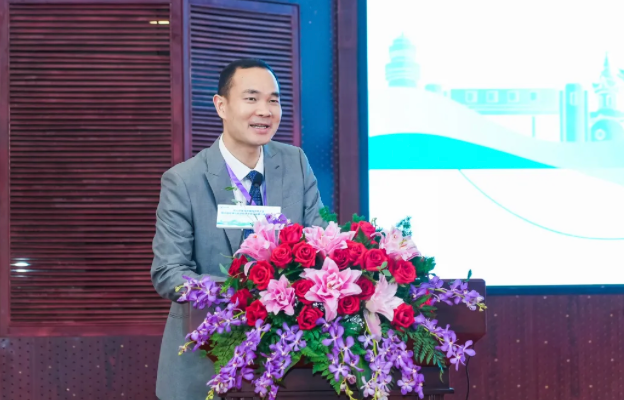
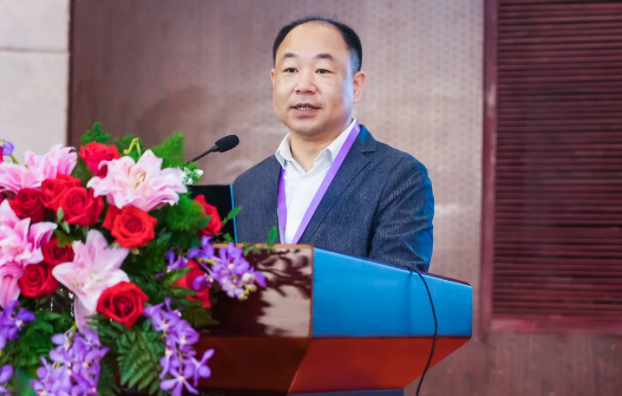
Host: Shen Liyong Opening Remarks: Zhao Zhirong
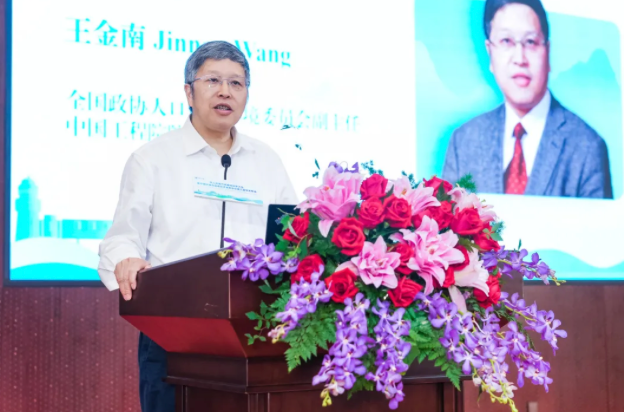
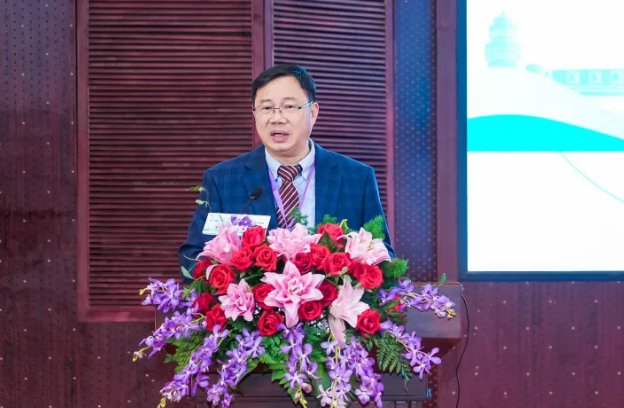
Opening Remarks: Wang JinnanOpening Remarks: Shi Minjun
Opening Ceremony
The conference invited several distinguished speakers for keynote addresses, including Professor Wang Jinnan, Academician of the Chinese Academy of Engineering; Professor Zhao Jinhua, Dean of the Dyson School of Applied Economics and Management at Cornell University; Professor Sumit Agarwal from the National University of Singapore Business School; Professor Zhang Junjie from the Nicholas School of the Environment at Duke University; Professor Zhang Bing, Vice President of Nanjing University of Finance and Economics; Professor Lawrence H. Goulder, Honorary Professor of Environmental and Resource Economics at Stanford University; Professor Roger H. von Haefen from the Department of Agricultural and Resource Economics at North Carolina State University; andDistinguished Professor Xue Jinjun from the School of Economics at Nagoya University.
In his speech titled "Prospects for the Development of Environmental Economics from the Perspective of Beautiful China," Academician Wang Jinnan reviewed nearly fifty years of development in environmental economics in China and envisioned the future direction of this field towards a Beautiful China. He pointed out that the discipline of environmental economics in China began by learning from international experiences, and as environmental protection efforts have grown, its development has been rooted in China's unique institutional context. It emphasizes localization, openness, inclusiveness, and innovation, making original contributions to the field, especially in environmental economic policy practices. Since the 18th National Congress of the Communist Party of China, the goal of building a Beautiful China has become a grand aspiration for the nation. He stated that the discipline of environmental economics bears the historical mission of providing high-level support for the construction of a Beautiful China in the new era, and it needs to expand research boundaries and enhance theoretical innovation. He proposed ten key future research directions, including green finance, environmental taxation, and environmental resource pricing. He encouraged scholars to further elevate the internationalization of discipline construction, engage in original theoretical innovations, and contribute to global environmental governance and the creation of a clean and beautiful Earth.
Professor Zhao Jinhua delivered a presentation titled "Green Guardians: The Important Mission of Public Information in Environmental Protection," exploring the role of public information in environmental protection from the perspective of producers and consumers. He pointed out that studies on the impact of environmental public information on behavior often focus on the two ends of the supply chain, namely consumers and producers. However, the entire process through which public information influences behavior is lengthy and can easily become distorted or interrupted, making it ineffective in promoting behavior change. Producers and consumers, as a unique group that embodies both production and consumption behaviors, are more directly influenced by public information. In the current era of generative AI and decentralized internet, public information can be formed and disseminated more efficiently and on a larger scale, allowing everyone to potentially become a producer-consumer. Based on this, he speculated that in the near future, consumer preferences could more directly impact production and pollutant emissions, and the importance of information as an informal regulation will significantly increase, presenting challenges for policy implementation due to generative AI. Thus, public information will become a "green guardian."

Keynote Speech: Wang Jinnan
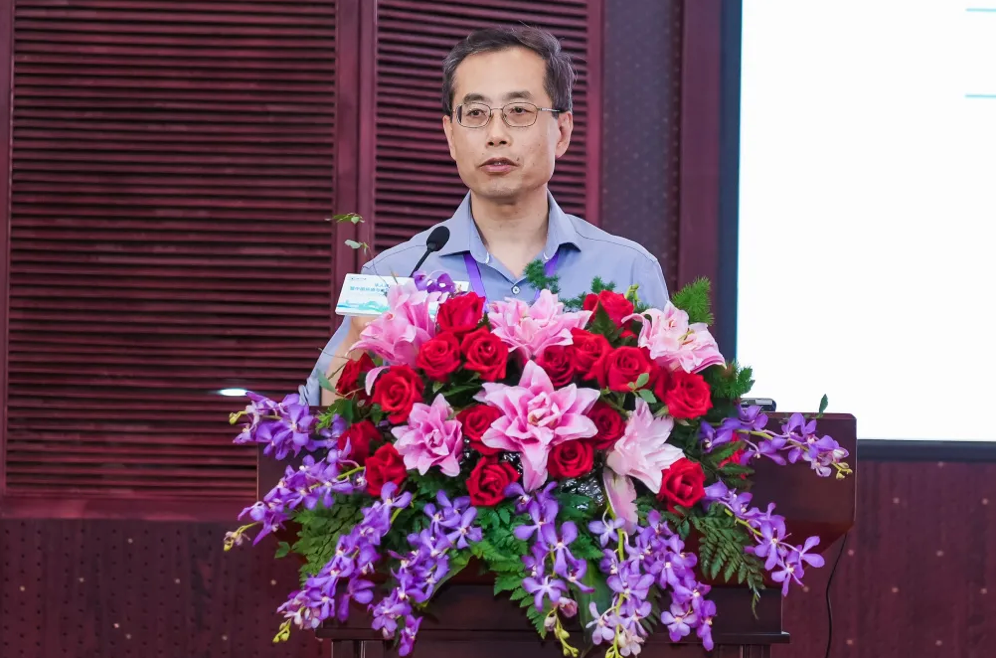
Keynote Speech: Zhao Jinhua
Professor Sumit Agarwal, in his presentation titled "Household Sustainability,"emphasized that households play a critical role in carbon footprints and sustainability, as their daily decisions directly impact energy consumption, water usage, transportation, and dietary choices. He highlighted that changes in household behaviors—such as adjustments to diet, energy use, and water consumption—can significantly reduce carbon emissions and resource consumption. Unlike the top-down approach of mainstream sustainability policies, empowering households to adopt sustainable lifestyles through a bottom-up approach can complement the former. Raising awareness and educating households on sustainable living, providing information and resources, and using rewards and incentives to encourage sustainable behaviors are key to achieving household sustainability. Through case studies, he demonstrated how promoting plant-based diets, water-saving devices, and reduced energy consumption can effectively enhance household sustainability. Achieving this goal requires joint efforts from the government, businesses, and communities to create policies, provide support and resources, and establish incentives to encourage sustainable actions by households.
Professor Zhang Junjie, in his presentation titled "Climate Change and Rural Credit Risk," shared his research on the risks climate change poses to rural credit. He pointed out that among the financial risks related to climate change, those faced by the banking system are particularly critical. Rural credit cooperatives, which are geographically and economically concentrated in county-level agriculture, are more vulnerable to climate change due to their inability to diversify risk. Using high-frequency weather data and panel data on individual credit, Professor Zhang examined the impact of climate change on individual-level rural credit risk. His findings show that extreme heat leads to an increase in overdue loan amounts at the end of the year, and extreme precipitation has long-term effects on rural credit quality. He argued that it is essential to implement lifecycle climate risk management.
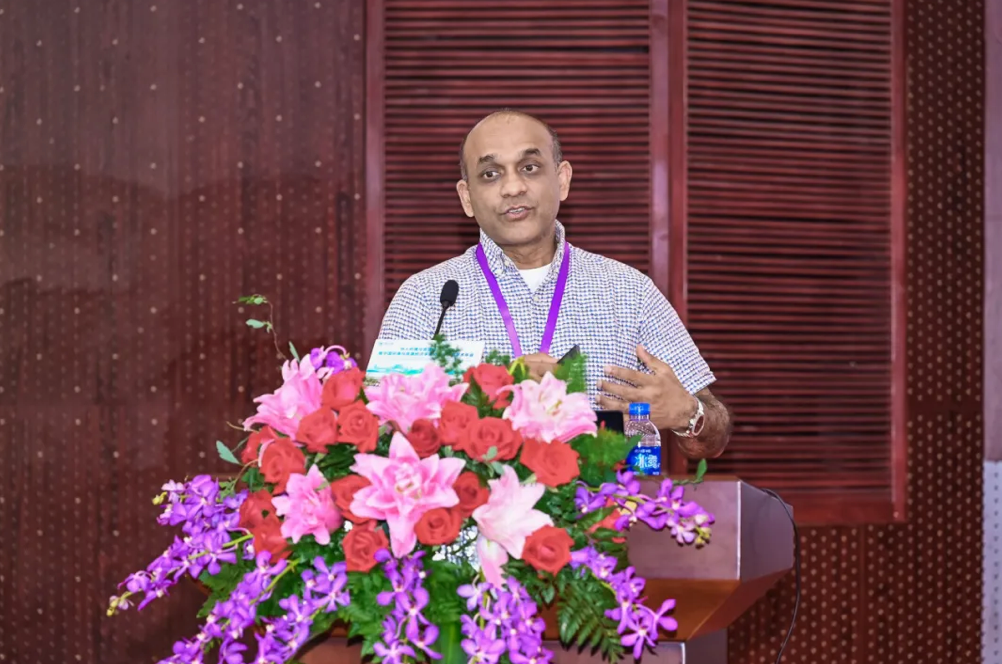
Keynote Speech: Sumit Agarwal
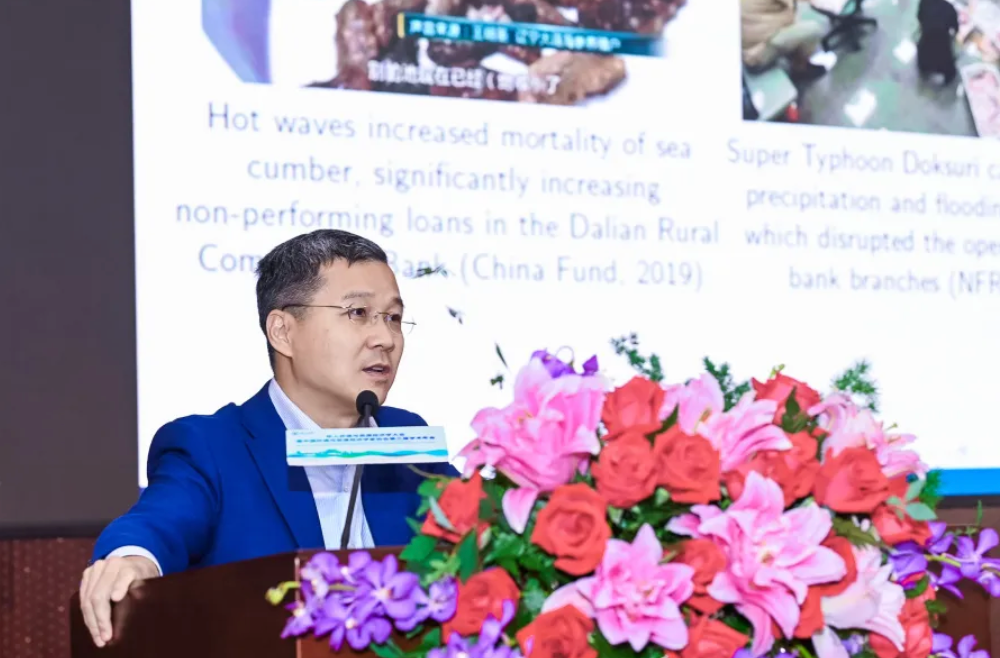
Keynote Speech: Zhang Junjie
Professor Zhang Bing presented on "Lost Goals: Random Environmental Enforcement and Enforcement Efficiency," discussing the effectiveness of the random inspection mechanism in environmental enforcement. He noted that phenomena such as collusion can lead to efficiency losses during policy implementation, making it crucial to maximize enforcement efficiency within budget constraints. He argued that random inspections limit the exploitation of informational advantages, potentially affecting the effectiveness of enforcement. Through machine learning and econometric regression models, he examined how the random environmental inspections implemented in China affect enforcement efficiency. His findings revealed that, when measuring the likelihood of illegal judgments against inspected enterprises, random inspections reduced enforcement efficiency; however, when the potential for collusion is high, the efficiency of random inspections improves. To formulate more effective enforcement strategies, policymakers must evaluate the benefits of preventing collusion against the low informational value of random inspections.
Professor Lawrence H. Goulder delivered a presentation titled "Assessing China’s Carbon Emission Trading System," highlighting that China's carbon emission trading system operates as a tradable performance standard (TPS), which differs from traditional cap-and-trade (C&T) systems. His assessment model took this distinction into account, along with characteristics of the Chinese economy, such as state-owned enterprises and regulatory aspects of the electricity market, to analyze the impacts of the carbon emission trading system on economic output, production costs, prices, and CO2 emissions. The research found that China's TPS performs exceptionally well environmentally, and the introduction of auctions as a supplement to permit supply can significantly reduce economic costs. He also discussed how to optimize cost-effectiveness and allocation fairness by adjusting the design and implementation of the carbon emission trading system.
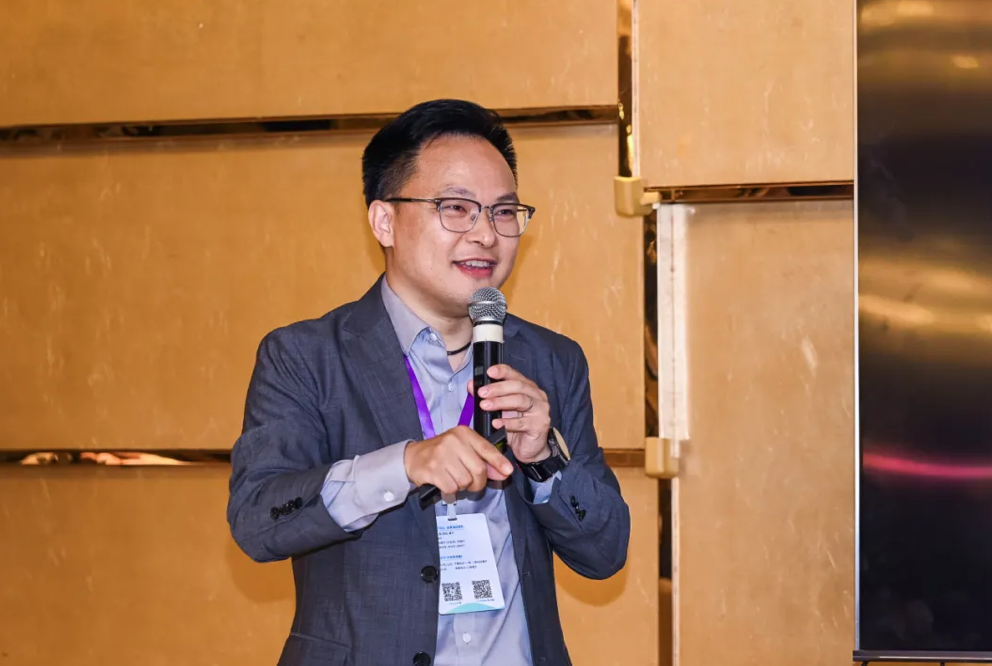
Keynote Speech: Zhang Bing
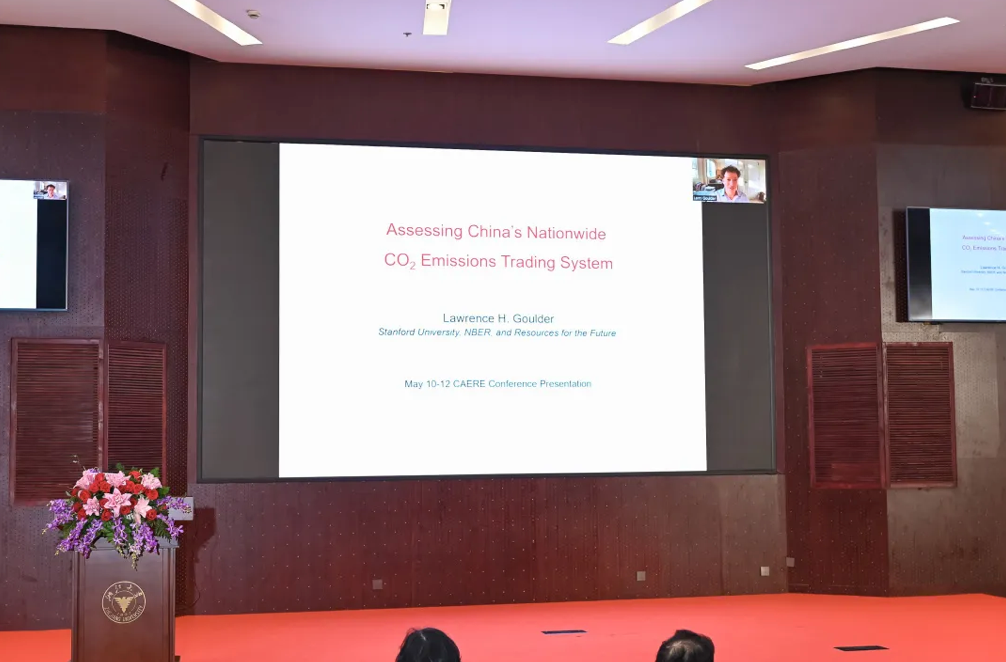
Keynote Speech: Lawrence H. Goulder
Professor Xue Jinjun focused on "Economic Theoretical Innovations of New Quality ProductiveForcesand the Responsibilities of Economists," outlining classic theoretical models of economic growth. From a development economics perspective, he explained how new quality productivity drives high-quality development, emphasizing the critical roles of technological innovation and green entrepreneurship. He pointed out that new quality productivity faces uncertainties due to challenges like climate change and technological advancement, advocating for the establishment of a new economics of quality productivity to address these challenges.
Professor Roger H. von Haefen, as the editor of JEEM, noted the increasing attention from Chinese scholars on the interactions between humans and the environment, emphasizing the aesthetic value of the environment. He introduced his involvement in calculating the natural resource damages caused by the 2010 "Deepwater Horizon" oil spill and presented research on how weather affects recreational fishing demand and adaptability. With climate change, individuals may need to adjust their recreational activities in response to changing environmental conditions. In his speech titled "The Increasingly Close Relationship Between Outdoor Recreation and the Environment," he pointed out that, in addition to outdoor activity data, air quality and weather pattern data are equally essential for understanding the environmental impacts of human activities and natural processes. He believes that, as a country rich in natural resources and cultural heritage, the aesthetic value of the environment in China cannot be overlooked. With the rise of the Chinese economy, more people are choosing to engage in cultural and recreational outdoor activities, and it is expected that the environmental recreational value in China will grow rapidly in the future.
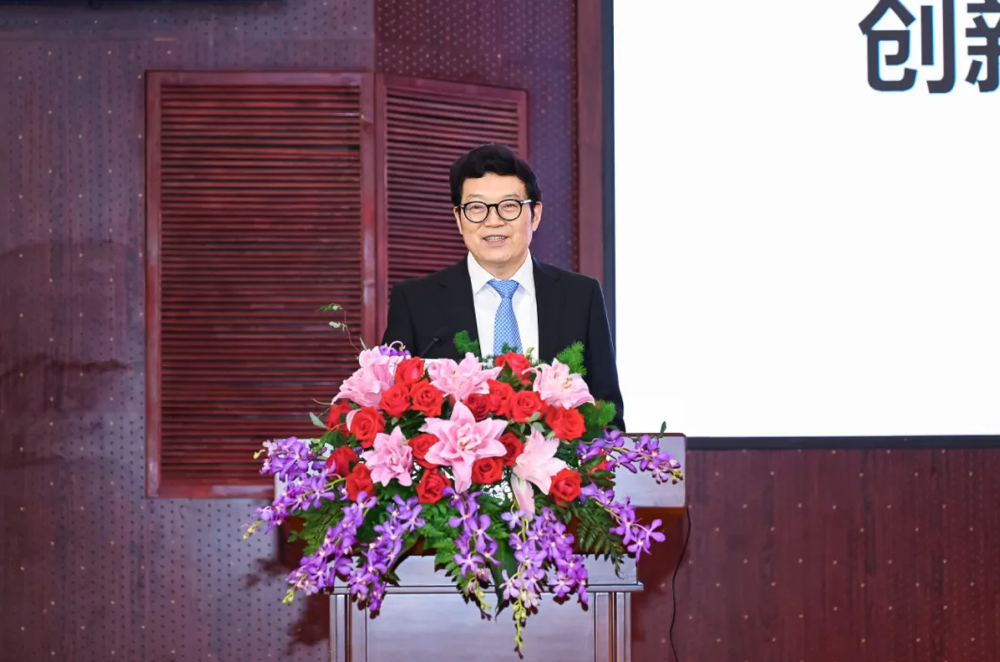
Keynote Speech: Xue Jinjun
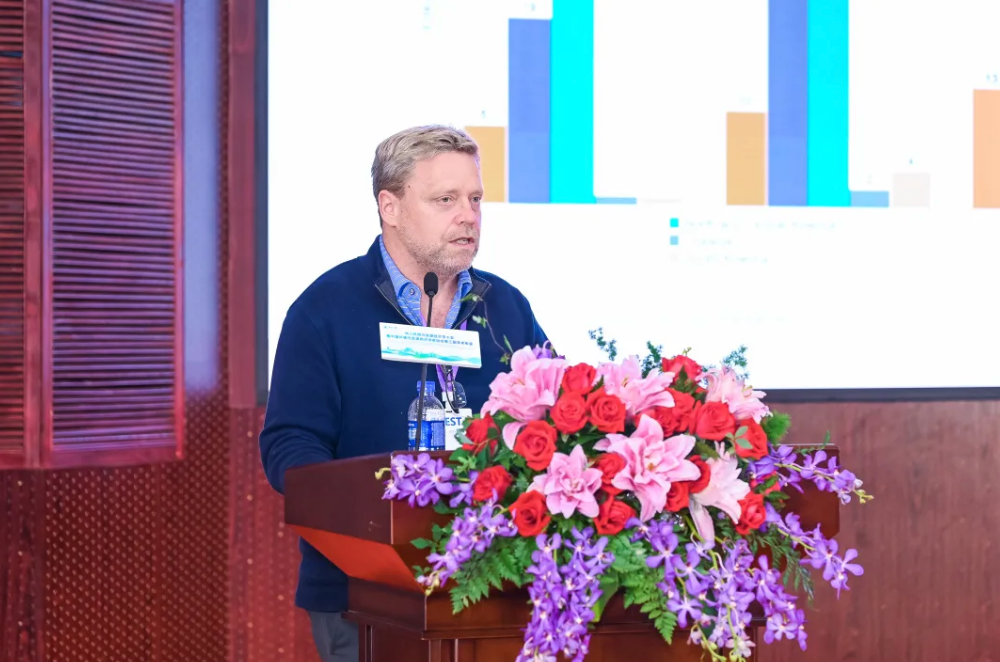
Keynote Speech: Roger H. von Haefen
The conference also held a meeting for the editors of academic journals, featuring joint editor Roger H. von Haefen from JEEM, editor-in-chief Li Shanjun from JAERE, deputy editor Shi Minjun from Resources Policy, deputy editor Zhang Peng from JDE, and executive deputy director Liu Chengqing from the editorial office of China Population, Resources and Environment. They addressed concerns from young scholars regarding paper submissions and shared their insights and recommendations. The editors indicated that their decisions to reject a manuscript are primarily based on three considerations: whether the content aligns with the journal’s focus, the originality of the research, and the text’s similarity index. They advised young scholars to pay particular attention to crafting a strong introduction.

Journal Editors' Meeting
Zou Ji, CEO and President for China of the Energy Foundation, shared via video four key issues that should remain a focus in the energy and environment sectors. Firstly, how to translate efforts to stabilize global climate and improve environmental quality into real market demand, thereby creating new momentum for economic growth. Secondly, the construction of China's carbon market, noting that the theoretical foundation and conceptual framework for the top-level design of the carbon market are still incomplete. Thirdly, the impact of ESG (Environmental, Social, and Governance) on corporate behavior, specifically how to shape the micro-foundations of sustainable corporate development in the context of standardizing environmental behavior. Fourth,the roles and responsibilities of various stakeholders in the global climate governance system.
A total of 306 papers were submitted to the conference, with 96 accepted after expert reviews. 82 papers were presented in 22 parallel forums. Topics covered in these forums included low-carbon emission reductions, climate adaptation, air pollution, ecological governance, green finance, environmental protection industries, ESG, environmental regulation, land policy, water pollution, and policy evaluation. The closing ceremony on the afternoon of the 12th featured an awards presentation for outstanding papers. The CAERE Awards Committee recognized one gold and one silver award for the best conference papers, as well as one award for the best doctoral dissertation.
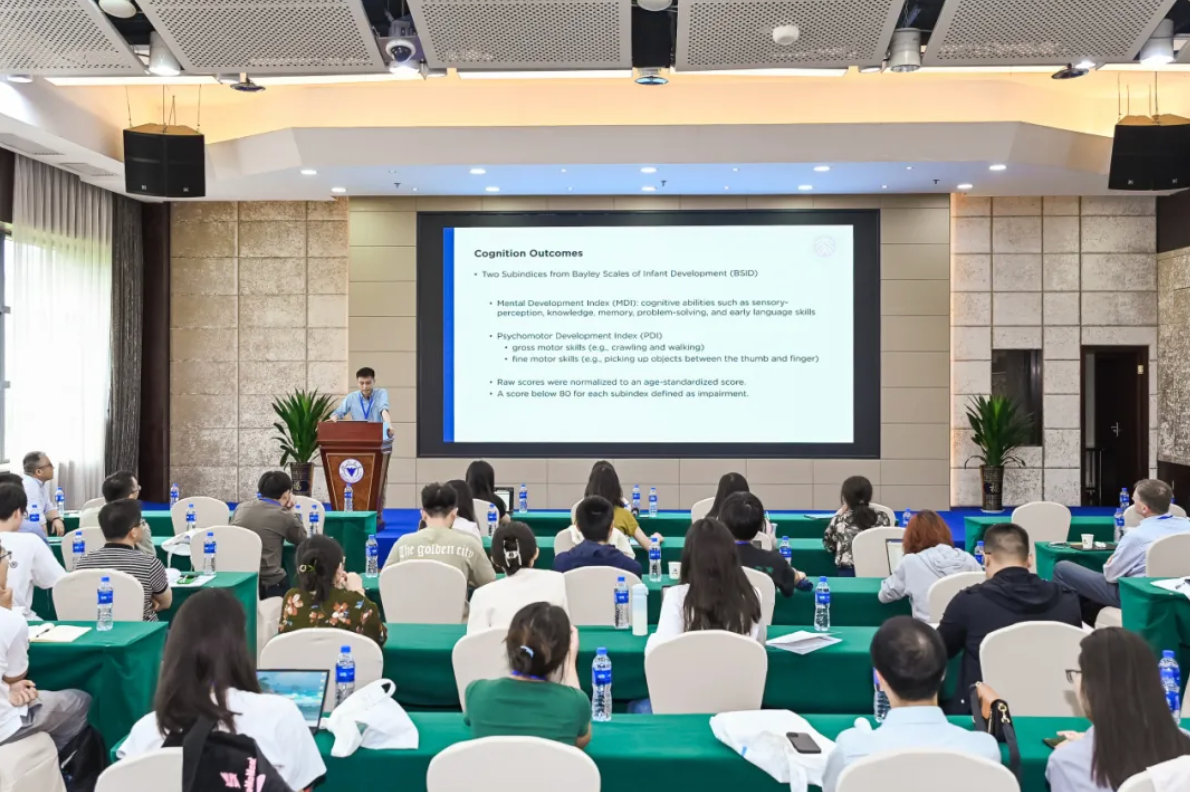
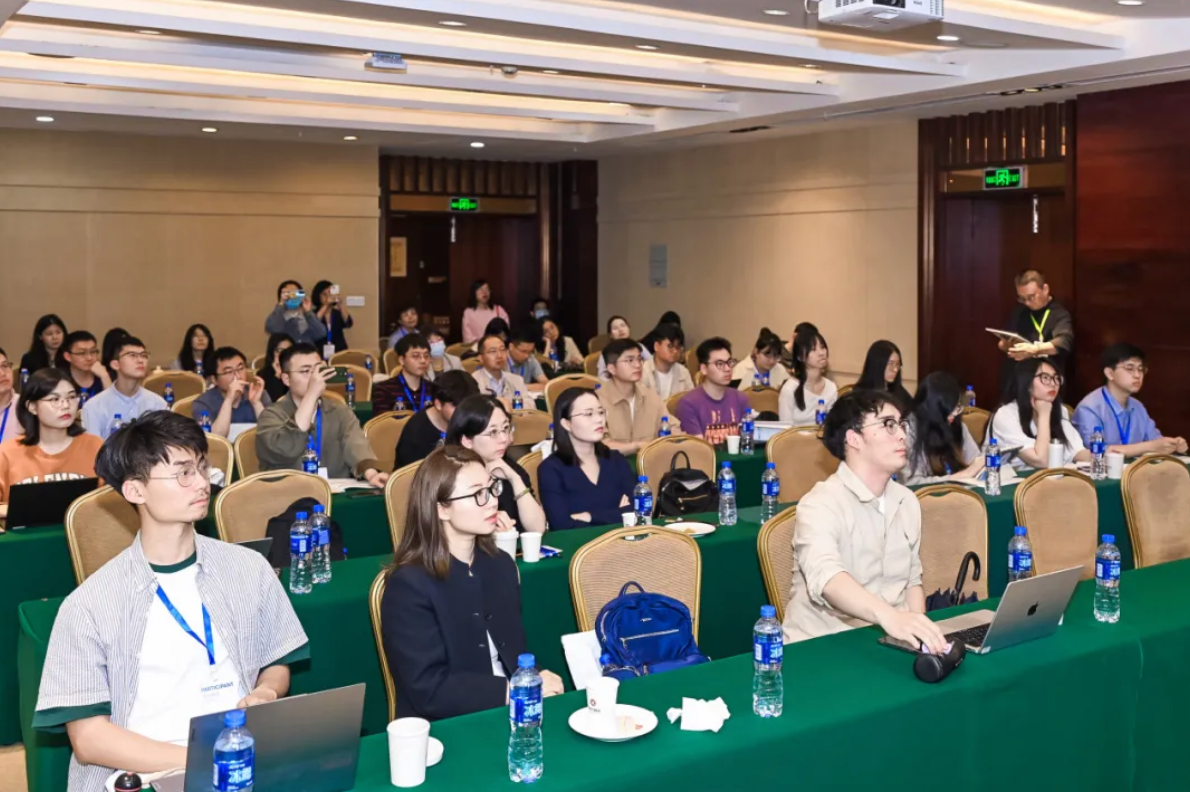
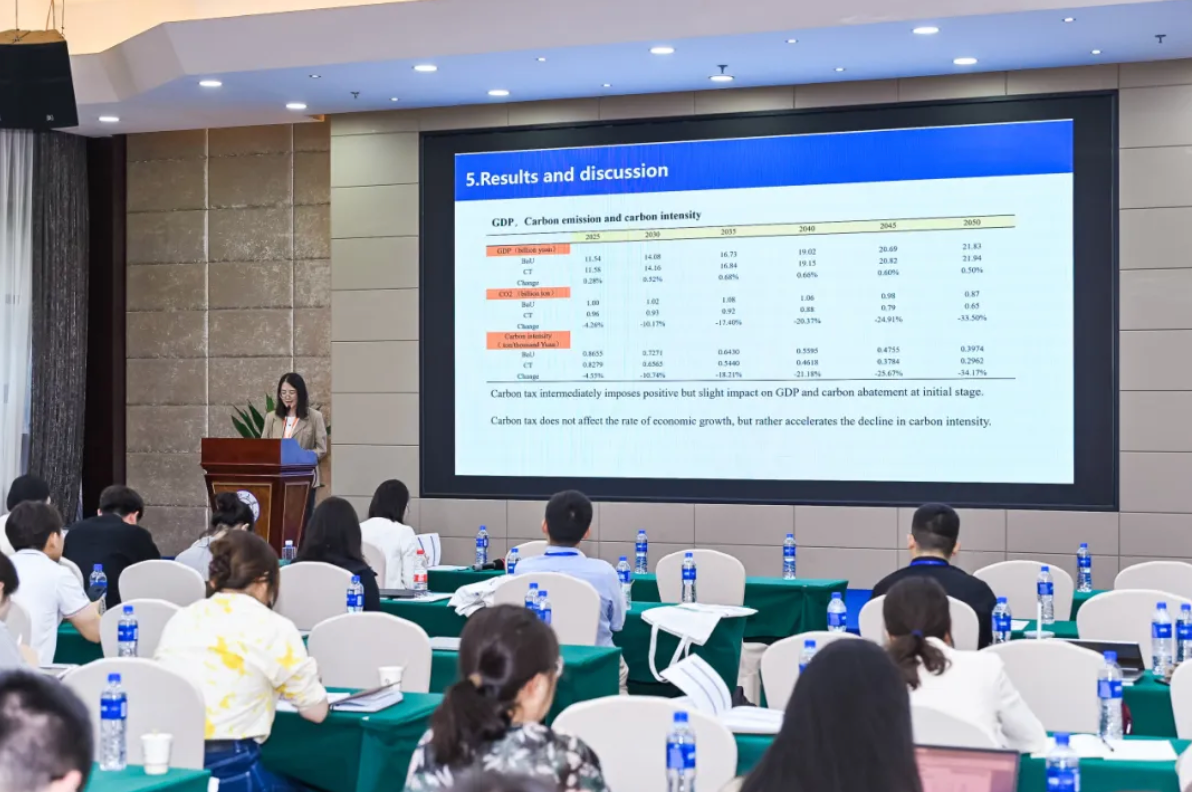
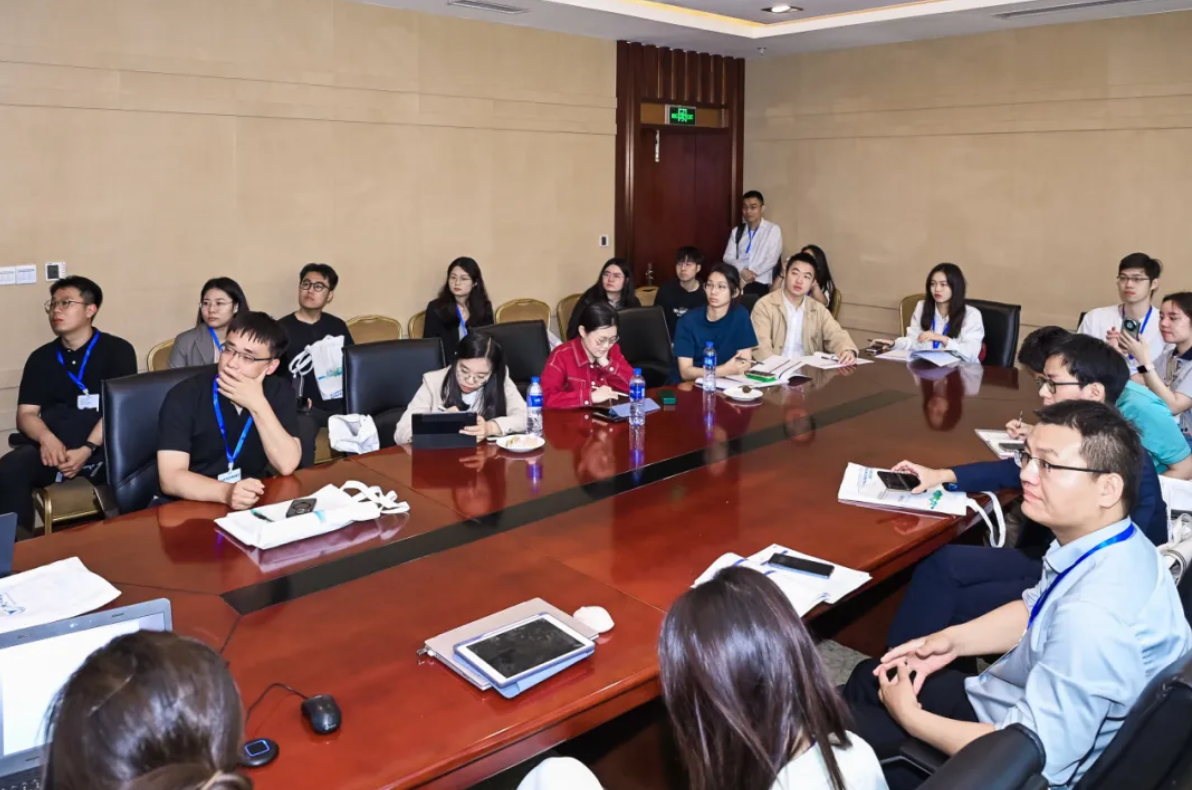
Parallel Forums
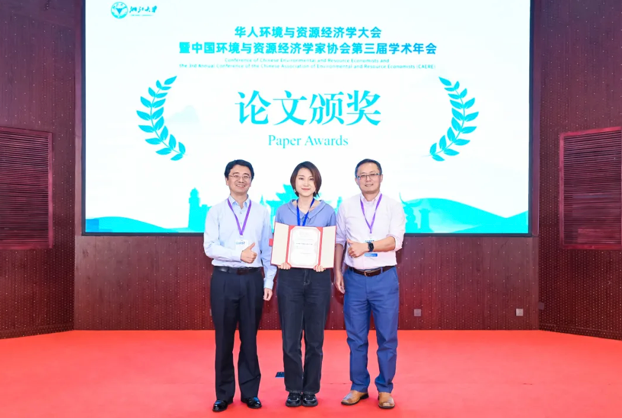
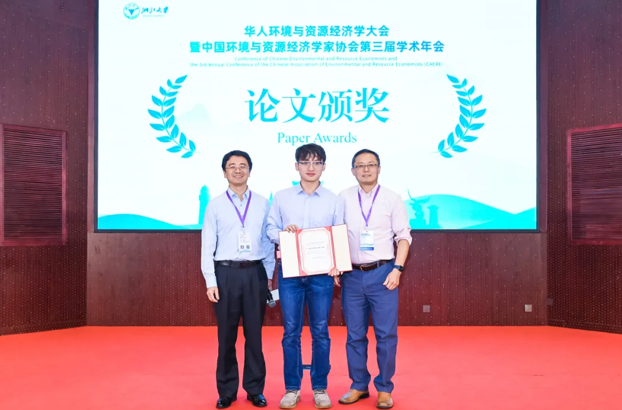
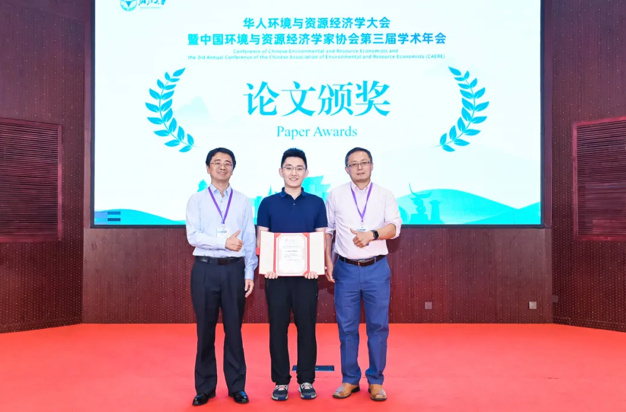
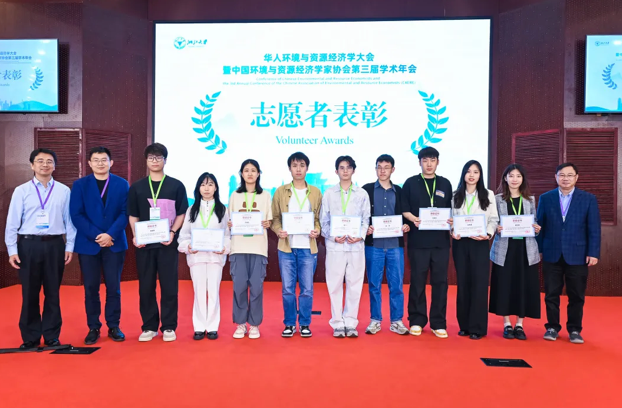
Paper Awards and Volunteer Recognition
The conference was organized by the Urban Development and Low Carbon Strategy Research Center, the School of Public Affairs, and the Academy of Humanities and Social Sciences at Zhejiang University, with support from the Low Carbon City Collaborative Innovation Center at Zhejiang University. The 2025 academic annual meeting will be hosted by Shanghai University of Finance and Economics.


